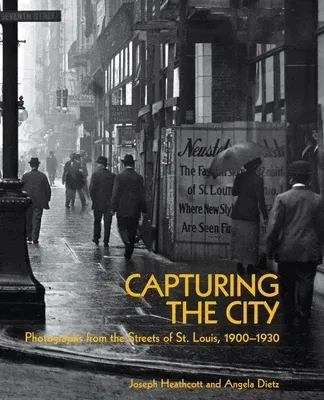During the first two decades of the twentieth century, the St. Louis
Street Department generated one of the most extensive troves of
photographs ever taken of the city. Ostensibly created to document
municipal challenges and improvements, the images inadvertently captured
richly detailed scenes of everyday life. Largely led by Charles Clement
Holt (1866-1925), St. Louis's photography operation expanded until it
produced about six thousand images per year in 1914. Many of these
photographs were lost, but a city historian salvaged a collection of
three hundred glass plate negatives in the 1950s, which are now in the
Missouri Historical Society collections. This small, but superb, group
of photographs provides a wealth of information on the visual culture of
St. Louis during a period of rapid transformation. Capturing the City
is the first book to examine these photographs, placing the people and
landscapes depicted within the broader context of a swiftly urbanizing
and industrializing metropolis.
Collected and analyzed here by Joseph Heathcott and Angela Dietz, the
compelling images in Capturing the City reveal the national trend
among cities to use the camera as a documentary tool. Reformers Jacob
Riis and Lewis Hine imagined the camera as a truth-telling instrument
and used their photographs to mobilize public consciousness. Across the
nation, cities used photographers to document slums, workhouses, and
crime scenes, as well as municipal improvements like street lighting,
pavement, and model housing. In this vein, Holt and his staff showcased
both the challenges and the successes of government action in St. Louis.
Consistent with their Progressive-era peers, their efforts contributed
to the record of ongoing public works while shaping the narrative of
urban progress itself.

